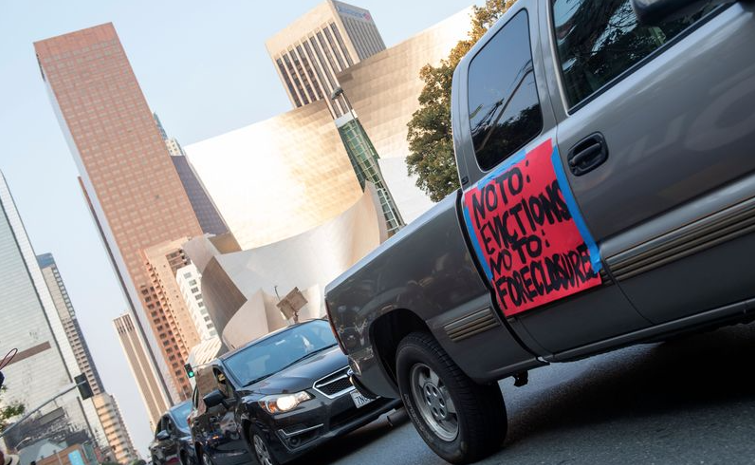CommentsPANDEMIC HOUSING CRISIS-With more than 16 million people in the U.S. out of work, Americans are having to stretch financially to keep the roof over their heads.
According to the Census Bureau, about a third of renters said in July that they had no confidence or slight confidence in their ability to pay for housing in August. With Republicans and Democrats in a stalemate over whether to extend an eviction moratorium and supplemental unemployment benefits, experts are warning that the country is poised for an eviction crisis of historic proportions.
- How many people could face eviction?
About 30 million Americans are “at risk” of being evicted in coming months because they can’t pay rent, according to a review of the Census survey data by the Aspen Institute Financial Security Program and the Covid-19 Eviction Defense Project, a coalition of researchers. Management consultant Stout Risius Ross, in its analysis of the Census data, put the number at 40 million. Eviction is a legal process, and the burden on landlords differs by state. But the mere threat of eviction often is enough for landlords to get someone to move out. Many landlords have been working with tenants in the hopes that more emergency rental assistance is on its way. Absent that help, the U.S. is heading for a massive wave of housing displacement and insecurity. More people will double up with family or end up homeless.
- Will this all happen at once?
It may take a few months for evictions to ramp up. Filings actually slowed in many places during the first few months of the pandemic. Many courts were closed, and a patchwork of federal, state, and local moratoriums prevented evictions in many cases. The federal moratorium expired on July 24, and landlords had 30 days to notify tenants if they wanted to evict them, meaning Aug. 24 was the earliest date at which the floodgates could open. As of the end of July, 30 states lacked state-level protections against eviction during the pandemic. But even in states where there are bans, they do little to clear people’s debts. Many now owe so much in back rent that they won’t be able to catch up, pushing landlords to evict them when restrictions lift.
- What’s being done to avert this?
On Aug. 8, President Donald Trump signed an executive order pledging to “take all lawful measures to prevent residential evictions and foreclosures resulting from financial hardships caused by Covid-19.” But that measure didn’t authorize any specific action. Real relief would have to come from Congress, and that means money -- lots of it. House Democrats have passed a plan that would provide $100 billion in rental assistance and ban evictions, but that’s stuck in stalled negotiation with Republicans on a new stimulus package; the Senate Republican plan for virus relief didn’t address evictions. Some cities, states and the private sector have established funds to help people pay rent.
- Why would a landlord evict someone at a time of high unemployment?
Landlords need to collect rent to cover their expenses, including mortgage payments and property taxes. Many also pay for utilities. Keeping non-paying tenants around can incur operating costs without generating any revenue. Property owners also worry that letting a renter live in a unit for free or reduced rent could encourage other tenants in a building to withhold some of their payments. Landlords may also be betting that they can fill empty units. Going into the pandemic, there was a severe shortage of affordable rental housing across the U.S. that was driving up rents faster than incomes. Vacancy rates were at decades-long lows.
- Who gets hurt?
Studies show that evictions affect Black and Latinx renters at much higher rates than White people. Renters with children are also more likely to be forced out of their home than those without. Getting evicted can make it harder for people to find a new place to live, because landlords often don’t want to rent to them. Smaller property owners with fewer financial resources may get squeezed, too, if they can’t collect enough rent to cover mortgages, property taxes and maintenance. A wave of foreclosures on these properties could gut the nation’s affordable housing stock, hurt city budgets and put strain on the banking system.
- Is this a U.S.-only problem?
No. U.K. Prime Minister Boris Johnson has twice extended a ban on evictions in England and Wales, and most British renters will be afforded a six-month eviction notice period to give them extra time to address financial hardship. France temporarily extended an annual wintertime ban on evictions.
(Noah Buyaver is a reporter for Bloomberg News here this was posted.) Prepped for CityWatch by Linda Abrams.
















